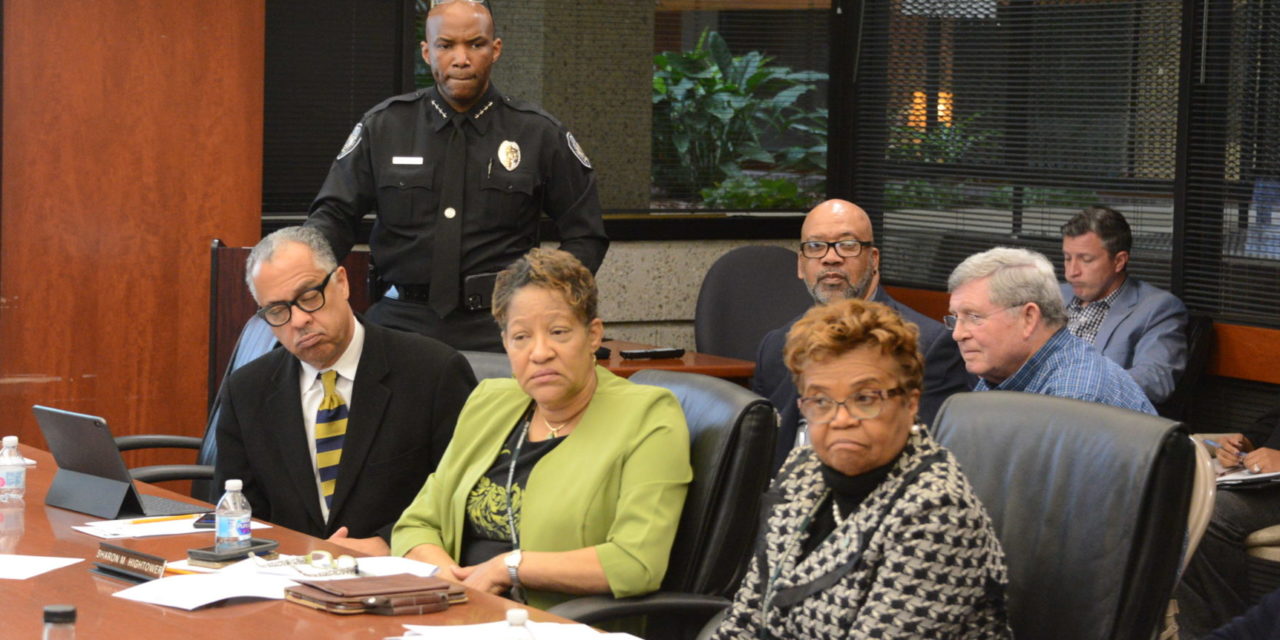The City Council, at its work session on Tuesday, Feb. 18, spent a considerable amount of time discussing what a police officer should say and do before he searches a car.
Called “consent searches,” they are usually associated with traffic stops, but according to Greensboro Police Chief Brian James, they also refer to houses and the search of an individual.
The police officer has to ask permission for the search and an individual can refuse. Some jurisdictions now require a police officer to have the person being searched sign a form stating that they agree to the search and understand that they can refuse.
The Greensboro Criminal Justice Advisory Committee (GCJAC) was asked to investigate consent searches and what other jurisdictions were doing. GCJAC came back with recommendations to require Greensboro police officers to read a standardized written consent form informing individuals they had the right to refuse, and have them sign it, before conducting a search.
A police officer can conduct a search without permission if the officer has probable cause, which means a reason to suspect that a crime has been committed.
Assistant City Manager Trey Davis noted that the current policy required that the consent either be documented by the police officer’s body worn camera or, if that was not available, by a written form, and that the officer is required to file a report on a consent search.
Councilmember Sharon Hightower expressed concern that police officers were not turning their body worn cameras on.
The police chief said that officers are required to have the body worn camera on anytime they are officially interacting with people and he said, “We require an officer to write a report just for asking for a consent search.”
Tom Phillips, a member of the GCJAC, said, “We want to make sure people understand their rights. You can ask for permission in a variety of ways, some of which can be intimidating.”
James noted that if an officer is talking to someone and asks for consent to search and then has to go get a form, that can take more time and be off-putting.
Councilmember Justin Outling said, “I’m not sure there is a problem. Could we get GCJAC to see if there is a problem?”
James said that that of about 19,000 traffic stops last year, only about 4 percent involved searches, and of those the Police Department had only had one complaint.
Mayor Nancy Vaughan suggested a standardized statement be read so that all police officers would be asking for consent in the exact same language.
Councilmember Marikay Abuzuaiter said, “I’m a little confused. Are we going to make a policy for the Police Department? We are becoming micromanagers.”
She added, “This is a little difficult for me. I’m having heartburn telling the chief how to run the department.”
In the end it was decided that the GCJAC would look at the body worn camera footage of about 80 searches, which could be time consuming since the city will have to go before a Superior Court judge to get permission for the GCJAC to view each video.


was Hightower worried about Hinson not having his body camera on when he intimidated a juvenile sexual assault victim? You know, at his group home?
Here we go again? Is City council going to tell the Chief how to run his department? Will the Chief have the courage to advise the council that he will run his department not them? Will the council have the courage and respect to allow the Chief to run his department? Will non law enforcement, never trained but constantly complaining about the police department provide the Chief time to put in place programs?
Where are the results of the $500,000 the city council provide to council woman Johnson and her group? Many months have passed with no results of our taxpayer money!
Would be a good follow up for the rhino times?
Is Marykay the only one up there on the Council with a working brain?
On this she appears to be … good for her for speaking up